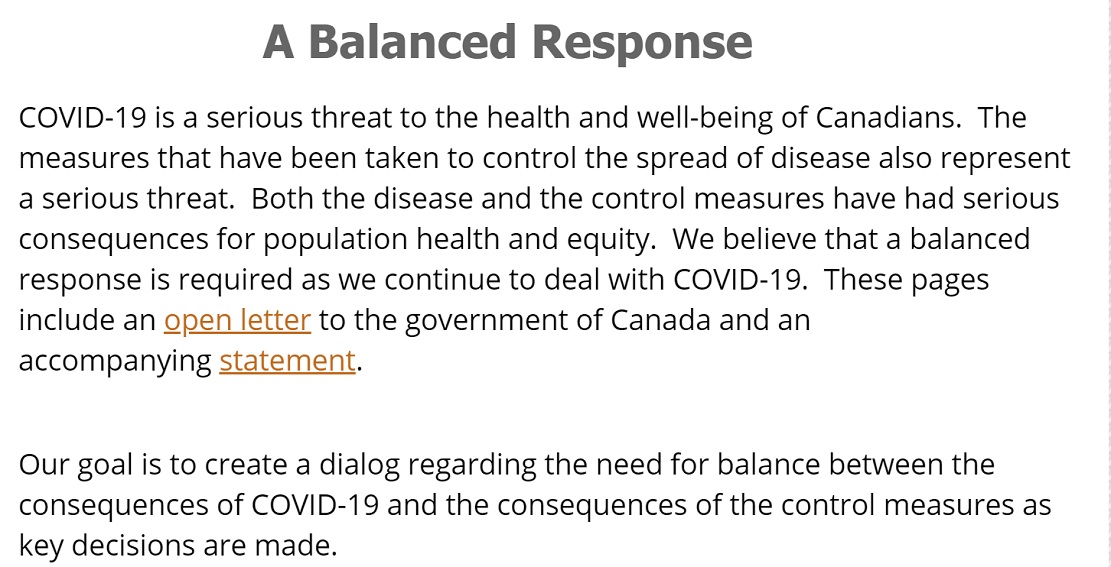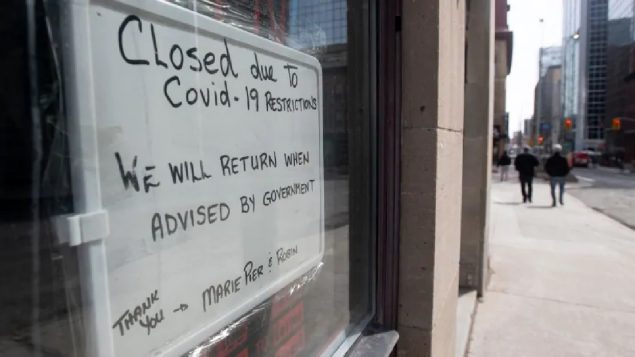Several important figures in the Canadian health system have written an open letter to politicians saying there is a societal balance needed in the fight against COVID-19.
They say the virus cannot be eliminated and the focus of governments should not be on attempting to do so. The letter says in part, “Elimination of COVID-19 is not a practical objective for Canada until we have a vaccine. While there is hope for a vaccine to be developed soon, we must be realistic about the time it will actually take to develop and evaluate it and then deliver an immunization campaign covering the entire population. We cannot sustain universal control measures indefinitely”.
The letter signed by some 18 notable health professionals includes several infectious disease and medical professors along with the likes of David Butler-Jones, Canada’s first Chief Public Health Officer and former Deputy Minister for the Public Health Agency of Canada; Janet Davidson, former Deputy Minister Alberta Health; Richard Schabas, former Ontario Chief Medical Officer of Health; and Gregory Taylor, fformer Chief Public Health Officer of Canada
It was addressed to the Prime Minister, and the Premiers of all provinces.
The idea of the lockdowns and restrictions was to “flatten the curve” ie avoid massive infection scenarios which would overwhelm the health care system, A flattened curve meant cases would be spread out more in time. The idea that it should be shifted into eliminating infections was a different objective and the group says, it should be accepted that until there is a vaccine, there will be small outbreaks. In the meantime as cases are lowered, schools and other institutions could be reopened with precautions

Opening page of statement by a group of medical experts linking to their open letter to the Prime Minister and Premiers
They say disease surveillance should be improved for greater testing and for contact tracing.
The group also says continued restrictions tend to affect marginalized communities and individuals more than the general public. They list Black and racialized groups, recent immigrants, indigenous, and lower income groups as being most hard hit by restrictions.
The letter presents a “risk-based” policy as current restrictions represent serious threats to public health and are “increasing inequities” by leaving the economy “very hobbled”
Critics respond
Not everyone agrees with the direction expressed in the letter. Irfan Dhalla, a physician and a vice-president at Unity Health Toronto. has been a strong advocate for efforts to eliminate the virus and aim for zero cases.
Quoted in the Globe and Mail he was critical of the opinions expressed by the group saying, “It’s a false dichotomy to say we either tame COVID-19 or we let people get back to work and to school. The places that have been best able to get children back to school and people back to work have been the same places that have aimed for elimination.”
An epidimiologist at the University of Guelph, Amy Greer, brushed off the letter as little more than platitudes adding that she and others disagree with the idea that “we should just a sit back on our heels and let this play out”
Ontario has just extended it’s state of health emergency until July 24. The provincial Health Minister Christine Elliot also quoted in the Globe and Mail said the cautious approach to reopening taken by the province has been successful in reducing infections and that they wouldn’t want to remove restrictions and open quickly back to normal and “see the public health impacts from that”.
The Public Health Agency of Canada for its part says it has already recognized the concerns raised and has been working various governments and stakeholders to address them.
Additional information- sources







For reasons beyond our control, and for an undetermined period of time, our comment section is now closed. However, our social networks remain open to your contributions.